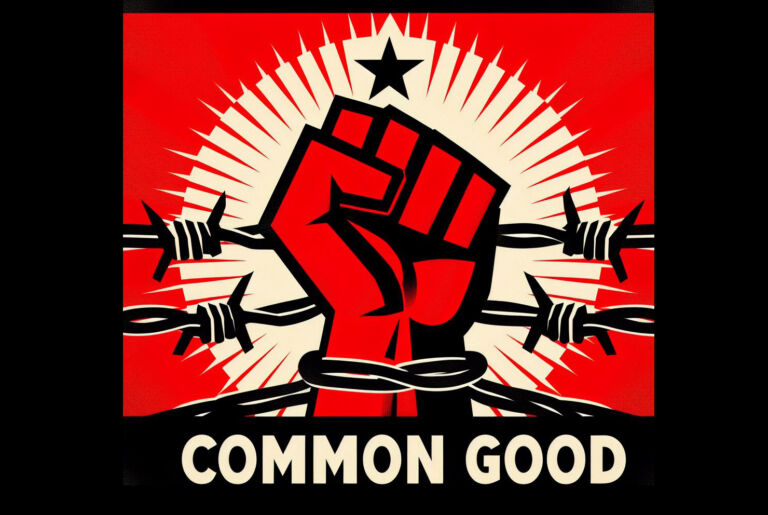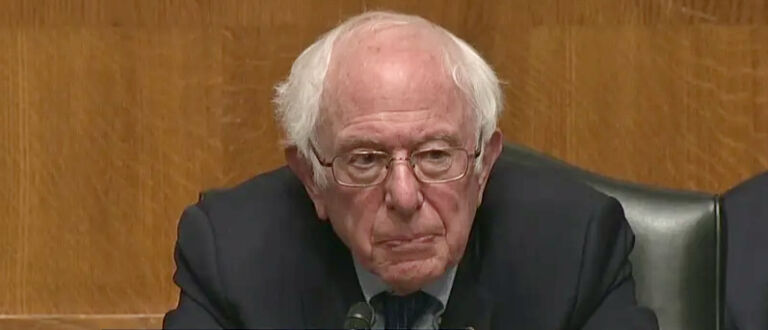- In A Theory of Justice, John Rawls proposed a thought experiment in which the subject chooses a system of political economy from behind a “veil of ignorance”
- There are several problems with the way Rawls applies the veil of ignorance in his book
- Nevertheless, a suitably modified version of Rawls’s experiment might encourage today’s self-styled socialists to reconsider their commitment to such a thoroughly discredited system of political economy
Many people nowadays, including a distressingly large number of young people, describe themselves as “socialists.” In this piece I propose a thought experiment that might convince at least some of them to reconsider. It’s inspired by a similar thought experiment that forms the heart of the book that turned John Rawls into the philosophical equivalent of a rock star: A Theory of Justice.
In Rawls’ version, the subject is asked to choose a system of political economy from behind a “veil of ignorance”; i.e., without knowing in advance what his or her position or role will be in that system. Rawls suggested that most people, indeed all rational people, would choose either a highly regulated form of capitalism combined with generous welfare benefits or a form of “liberal socialism” in which firms are under the control of the workers and some individual rights are protected.
A Theory of Justice is a long, dense book, and I doubt very many people have actually read and digested the whole thing. Nevertheless, it’s been highly influential, and it continues to be cited as a justification for more government intervention in the economy, an ever-expanding welfare state, and less freedom overall. In recent years it has even inspired a movement calling for the enforcement of universal welfare rights under international law.
The veil of ignorance is a clever idea and a useful tool for sharpening our moral intuitions. Nevertheless, I think the way Rawls applies it is defective in three ways. First, it assumes individuals can simply devise economic and political institutions from scratch based on what justice requires. However, economic and political institutions have never been and can never be devised from scratch. They are always the result of a long process of evolution.
Second, Rawls’ approach is too divorced from practical reality. It’s easy to come up with an imaginary system of political economy that will deliver a glorious future in which all our problems have been solved and everyone receives his or her just deserts. However, unless that system has been subjected to real-world testing and feedback, there’s no telling whether it will work out as planned.
Finally, Rawls’ approach makes it too easy for subjects to ignore or discount the risks and costs associated with their chosen system of political economy. People are often quite willing to sacrifice the welfare of people living in the present for the sake of a glorious imaginary future. That’s especially true when it’s the welfare of other people that must be sacrificed, but a surprisingly large number are willing to sacrifice themselves for an imaginary future, too.
My modified version of Rawls’ experiment attempts to cure those defects in two ways. First, instead of being asked to invent an imaginary system of political economy from behind the veil of ignorance, the subject would be asked to choose an actual system of political economy that exists in an actual country. Second, instead of being asked to choose on the assumption that he or she will be assigned at random to some position or role, the subject would be asked to choose on the assumption that it is his or her children who will be randomly situated in the chosen country.
Henceforth, whenever I meet someone who claims to be a socialist, I will ask them to try that experiment and let me know the result. I will be very surprised if any of them choose to place their children in a truly socialist country like Cuba, North Korea, or Venezuela. And I doubt very many of them will choose to place their children in an authoritarian country with a centrally planned economy like China, Iran, or Russia either. Instead, I expect almost all of them will choose a country from the Anglosphere (e.g., the United States, the United Kingdom, Canada, or Australia), one from the European Union (e.g., Denmark, Germany, Sweden, or the Netherlands), or a similar country from some other region (e.g., Japan or South Korea).
None of those countries could reasonably be called socialist. Instead, they exemplify what is sometimes called the “classical liberal” system of political economy. Classical liberalism could be defined in various ways, but at least two features must be present. The first is some form of representative democracy that makes it possible for the people to remove bad rulers and change bad policies without violence. The second is an effective rule of law that constrains government power and protects fundamental individual rights. Those rights must include personal and political rights such as the freedoms of speech and religion and the right to due process. Crucially, however, they must also include economic rights, including the right to start and operate a business, the right to exchange goods and services, and the right to own, use, and sell property, including the means of production.
Those economic rights are, of course, what make capitalism possible. As such, they are precisely what today’s socialists claim to abhor. If they had to choose, however, I’m quite sure most of them would place their children in a country in which those rights are reasonably secure, and that, I think, should give them pause.
One can quibble about which country has done it best. I’m partial to the American version, but some may prefer the Danish or the Australian one. It seems undeniable, however, that when compared with the rest of the world, the countries that have come closest to the classical liberal ideal have achieved the best quality of life for their citizens and have become the destination of choice for migrants. That doesn’t necessarily mean any country has done it perfectly. It doesn’t mean it’s the best system mankind will ever develop, nor does it mean it can be successfully introduced and made to work everywhere. It does, however, mean those of us who are lucky enough to live in countries that enjoy the benefits of the classical liberal system should be very cautious about making major changes. And it means we should never even consider replacing it with a socialistic system in which the government has unlimited control over the economy.
Still, that’s just my view. I encourage readers to try the experiment themselves. Try it on your friends and relations too. And — if you’re so inclined — please let me know what happens. I’ll be keeping track of the results.
For more information about this topic, see “Two Approaches to the Design of Legal Institutions.”

